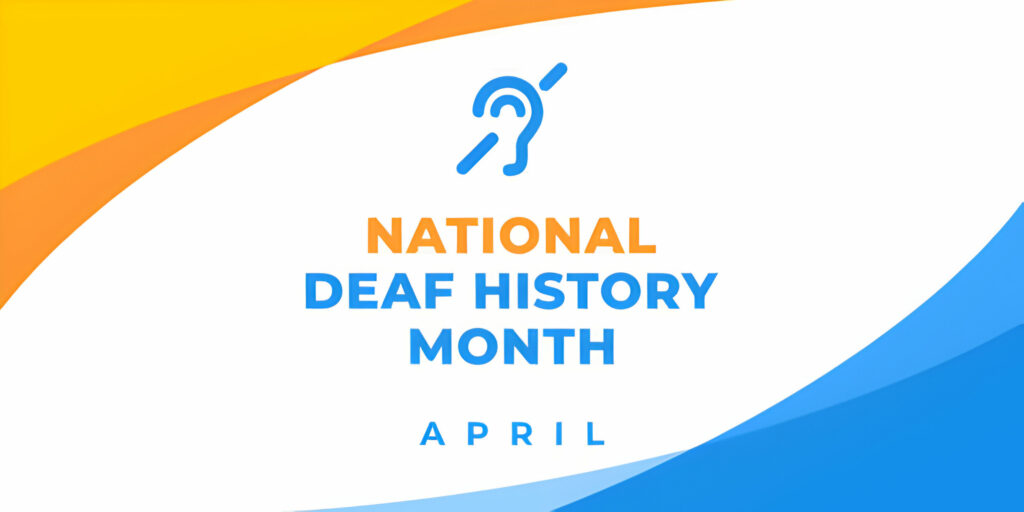
Every March, we celebrate Deaf History Month, a time dedicated to honoring the rich heritage, achievements, and contributions of the Deaf community. From groundbreaking advancements in education and advocacy to remarkable feats in the arts and sciences, the Deaf community has left an indelible mark on history and continues to inspire us all.
The Origins of Deaf History Month

Deaf History Month, observed from March 13th to April 15th, commemorates two significant milestones in Deaf history: the establishment of the first permanent school for the deaf in America and the founding of the American School for the Deaf in Hartford, Connecticut in 1817, as well as the signing of the Gallaudet University Charter by President Abraham Lincoln in 1864, which established the first institution of higher education for the Deaf in the world.
Honoring Deaf Culture and Identity
Deaf History Month is an opportunity to celebrate the unique culture, language, and identity of the Deaf community. American Sign Language (ASL), a visual-gestural language with its own grammar and syntax, serves as a cornerstone of Deaf culture and communication. Through ASL, Deaf individuals express themselves, share stories, and connect with one another, fostering a sense of belonging and pride in their cultural heritage.
Recognizing Trailblazers and Icons
Deaf History Month is also a time to recognize and celebrate the achievements of Deaf individuals who have made significant contributions in various fields. From renowned artists and performers like the late Clayton Valli, whose poetry and storytelling captivated audiences around the world, to groundbreaking scientists and activists like Dr. I. King Jordan, the first Deaf president of Gallaudet University, Deaf individuals have excelled and thrived in diverse fields, breaking down barriers and paving the way for future generations.
Advancements in Deaf Education and Accessibility

Throughout history, the Deaf community has been at the forefront of advocating for accessible education and equal opportunities. From the establishment of schools for the Deaf to the development of innovative educational approaches like bilingual-bicultural education, the Deaf community has played a pivotal role in shaping the landscape of Deaf education and promoting linguistic and cultural diversity.
Celebrating Diversity and Inclusion

Deaf History Month serves as a reminder of the importance of diversity, inclusion, and representation. It is a time to amplify Deaf voices, share stories of resilience and empowerment, and challenge societal norms and stereotypes. By celebrating the achievements and contributions of the Deaf community, we honor the principle of equity and strive to create a more inclusive and accessible world for all.
Get Involved
There are many ways to participate in Deaf History Month and show your support for the Deaf community. You can attend virtual events and workshops, learn more about Deaf history and culture, support Deaf-owned businesses and organizations, and advocate for policies and initiatives that promote accessibility and inclusion.
As we celebrate Deaf History Month, let us reflect on the rich legacy and enduring impact of the Deaf community. Together, let us continue to champion diversity, celebrate achievements, and foster greater understanding and appreciation for the Deaf culture and community.
